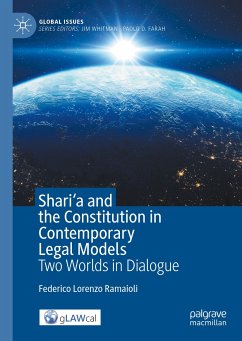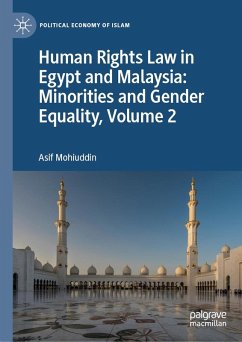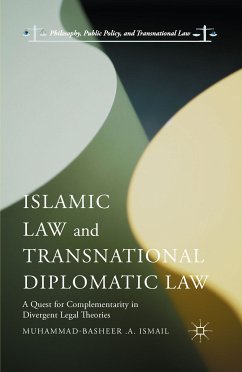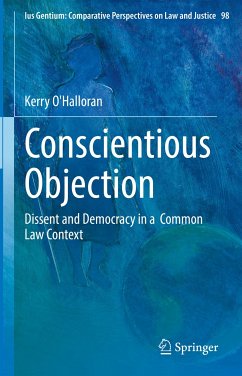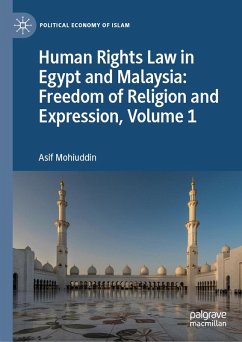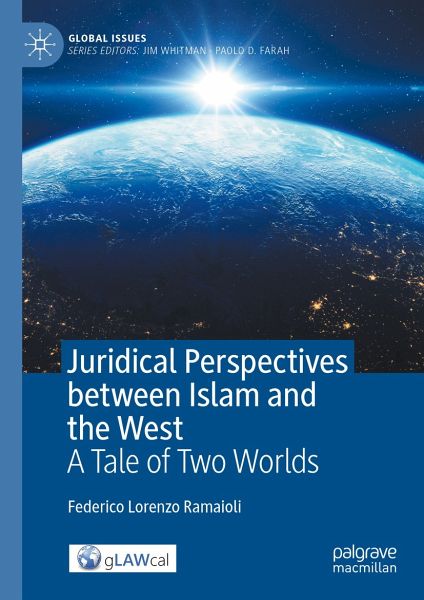
Juridical Perspectives between Islam and the West (eBook, PDF)
A Tale of Two Worlds
Versandkostenfrei!
Sofort per Download lieferbar
104,95 €
inkl. MwSt.
Weitere Ausgaben:

PAYBACK Punkte
52 °P sammeln!
This comparative philosophy of law book aims at formulating a new analytical approach to the Islamic legal tradition based on 'juridical categories', a concept that facilitates comprehension and understanding of juridical phenomena. Building upon legal comparativism and legal pluralism, this project intends to avoid bias caused by universalizing Western categories when analyzing foreign juridical notions, which inevitably results in the miscomprehension of non-Western ideas and institutions. Unlike existing literature, this project will not focus on substantive comparisons between normative co...
This comparative philosophy of law book aims at formulating a new analytical approach to the Islamic legal tradition based on 'juridical categories', a concept that facilitates comprehension and understanding of juridical phenomena. Building upon legal comparativism and legal pluralism, this project intends to avoid bias caused by universalizing Western categories when analyzing foreign juridical notions, which inevitably results in the miscomprehension of non-Western ideas and institutions. Unlike existing literature, this project will not focus on substantive comparisons between normative contents, but on the 'juridical perspectives' that helped to shape the Islamic and Western legal orders.
The book focuses on the most relevant juridical questions regarding the Islamic and Western legal perspectives, such as the different visions regarding juridical spatiality, the role of human reason and the relationship between law, man and the divinity. While contributing to legal philosophy, this work intends also to develop and define a new interdisciplinary approach, aiming to provide a starting point for novel analyses in research fields such as legal comparativism, legal pluralism, and constitutional law. Finally, by formulating a new interdisciplinary approach, it will provide a foundational discussion of a continuously evolving subject that will never be exhaustively explored. As such, it aims at broadening scholarly reflections on the relationship between the West and Islam, eventually placing these concepts within a suitably comprehensive and contextualized framework.
"Published in cooperation with gLAWcal - Global Law Initiatives for Sustainable Development, Hornchurch, Essex, United Kingdom".
Dieser Download kann aus rechtlichen Gründen nur mit Rechnungsadresse in A, B, BG, CY, CZ, D, DK, EW, E, FIN, F, GR, HR, H, IRL, I, LT, L, LR, M, NL, PL, P, R, S, SLO, SK ausgeliefert werden.



